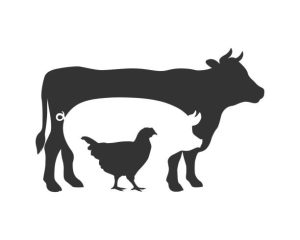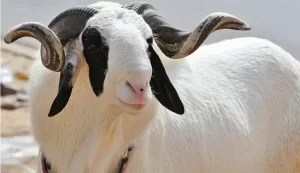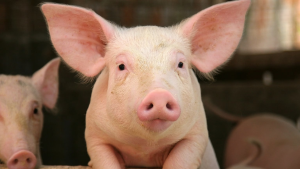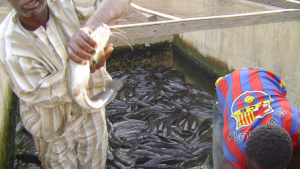By
Felix Oboagwina
Fulani cowboys, under the aegis of their umbrella association Miyetti Allah, quickly rolled out the drums as soon as President Bola Ahmed Tinubu announced the creation of the Ministry of Livestock Resources on 9th July. For this association of Fulani herdsmen, the new establishment is a dream coming true. Congratulations to them.

Unlike Miyetti Allah, however, some have queried the desirability of the Ministry and its associated Committee on Livestock Reforms Development. But what good will come from fighting a policy already announced? Nevertheless, people have pointed out that the Ministry of Agriculture already has departments handling livestock affairs and giving it an entire Ministry amounts to tautology.
What bothers some people, however, is that where the Miyetti Allah can be accused of exhibiting some sense of entitlement, deafening silence comes from other livestock business practitioners and their associations. Where are the poultry farmers? Where are the piggery owners and their umbrella association? Why are the fish farmers, the snail breeders and their umbrella societies keeping mute about a Ministry and a Committee devoted, idealistically, to tackling their affairs? Why do they behave as if they will have no business with these new establishments?
Perhaps the President did not help matters when at the inauguration of the Committee on the Livestock Reforms Development he spoke about “farmers-herders clashes” and how Nigeria cannot afford to continue to wallow in that crisis. Such a statement narrows the parallax of the Ministry to cattle-rearers and cattle-rearing. It profiles and stigmatises the Ministry as a structure slanted towards Fulani herdsmen. Thus far, the body language of Miyetti Allah and the North demonstrates and inordinate zeal to possess the soul of the newly established Ministry –even when its funds will obviously not come from cow-generated revenue.

Neither does it help matters that President Tinubu, who initially announced himself the head of the committee, has subsequently ceded control to a Northerner of Hausa-Fulani extraction. Professor Attahiru Jega hails from Jega in Kebbi State. Jega now takes full control as the Livestock Committee’s Chairman. Why did Tinubu volte-face and relinquish chairmanship? No official reason has been given. Maybe they reminded him that he already holds the fulltime reins of the Ministry of Petroleum Resources, where he has so far performed not impressively. Adding the Livestock Committee to his plate would have simply amounted to some overkill.
What will be the relationship between the Committee and the Ministry? That remains opaquely undefined and amorphous.
With Jega’s speciality in Political Science (not Animal Science or associated disciplines), Tinubu has unequivocally politicised the appointment of the former INEC Chairman cum university VC. Against this backdrop, the emerging body language shows a potent potential of the politicisation and “cattlerisation” of the entire Livestock Ministry. This should not happen.
Although putting the wrong foot forward with Jega’s square-peg-in-a-round-hole employment, the President must remember that livestock goes beyond cattle. Thus, the Livestock Ministry (or Committee) must not be seen as a monopoly of the Fulani and subjected to any “fulanisation” or “cattlerisation” designs.
One definition says livestock refers to “domesticated animals raised in an agricultural setting in order to provide labour and produce diversified products for consumption such as meat, eggs, milk, fur, leather, and wool.” That is the liberal view. However, we acknowledge the parochial subscription of the United States Department of Agriculture (USDA) that classifies pork, veal, beef and lamb (mutton) as livestock, and all livestock as red meat. Poultry and fish are not included in the US categorisation; thus they are placed outside the control of the USDA. Instead, fish products are governed by the Food and Drug Administration (FDA, their own equivalent of our NAFDAC).
Let’s zoom in on poultry that US exempts from the livestock population. As of 2022 in Africa, Nigeria with 249 million heads of poultry came second only behind Egypt (300 million) in the bird and feathered population. That year, we had 4.4 million pigs. Cattle population came to around 20.9 million heads. Sheep came to an estimated 50.3 million heads. Live goats amounted to 88.04 million heads.

Statistically, today, fish accounts for 40 percent of Nigeria’s protein intake. And the fish population defies measurement in units and so calculation for weighs in per tonnage. Total fish production per year is close to 1 million metric tons (313,231 metric tons from aquaculture and 759,828 metric tons from fisheries and fish farms). Around 94 million hectares are used for fishery production. What about people working in the fish value chain? As many as 1,477,651 people work as fishers, where herdsmen cannot be more than 20,000.
Bottomline? The new Ministry cannot and must not cold-shoulder other categories of livestock. Although politically, government, the Ministry and the Committee may see cattle as primus inter pares among animals domesticated for food, these two livestock establishments must approach their assignments with a large-hearted and broad-topped umbrella that accommodates all categories of protein sources and businesses.
For example, what policy will Jega, a Muslim, be proffering or implementing for pigs, piggeries and pig farmers, seeing his religion forbids the consumption and trading of such?

Although the pronouncements and mental conceptualisation of the emerging structure has begun on a shaky political footing, going forward, authorities must quell the entitlement mentality of cattle-rearers; and they must plant the foundation of the livestock bureaucracy on some level of political correctness. For starters, if the Committee is headed by Jega, who represents the North and Muslims, a Southerner or a Christian should provide balance as Minister of Livestock Resources, and vice versa.
Even within the Ministry of Livestock, the appointment of the Minister and the Permanent Secretary (or Director-General) should be religiously and ethnically balanced. This will satisfy the Constitution, which, in Section 14(3) stipulates that:
The composition of the Government of the Federation or any of its agencies and the conduct of its affairs shall be carried out in such a manner as to reflect the federal character of Nigeria and the need to promote national unity, and also to command national loyalty, thereby ensuring that there shall be no predominance of persons from a few State or from a few ethnic or other sectional groups in that Government or in any of its agencies.

The Ministry MUST view and zero in on all protein sources as its primary assignment. While the Ministry and the Committee will look at the security implication of ending the herdsmen’s versus farmers’ clashes, they must fix their gaze beyond cattle. They must grapple with the job of meeting the totality of the protein needs of Nigerians. As Nigerians do not derive their entire protein needs from simply cattle, no one’s entitlement mentality should be allowed to colonise, hijack, Islamise, “Fulanise” and “cattlerise” this new Ministry of Livestock and the Committee on Livestock Reforms. Both must be positioned as commonwealth institutions established to cater for poultry, fishes, pigs, cattle, sheep, goats, snails and all other protein sources.
FELIX OBOAGWINA IS A JOURNALIST AND HE LIVES IN LAGOS

